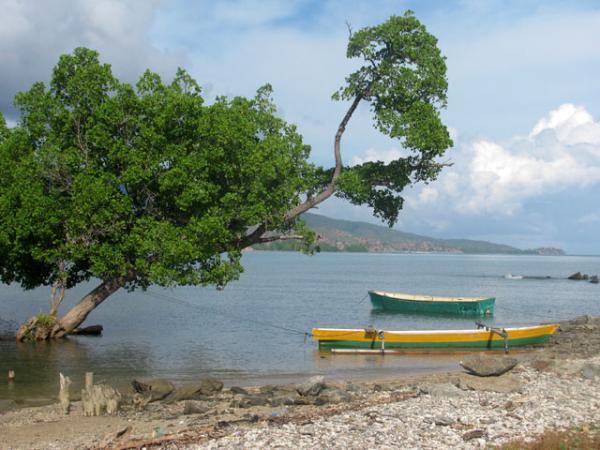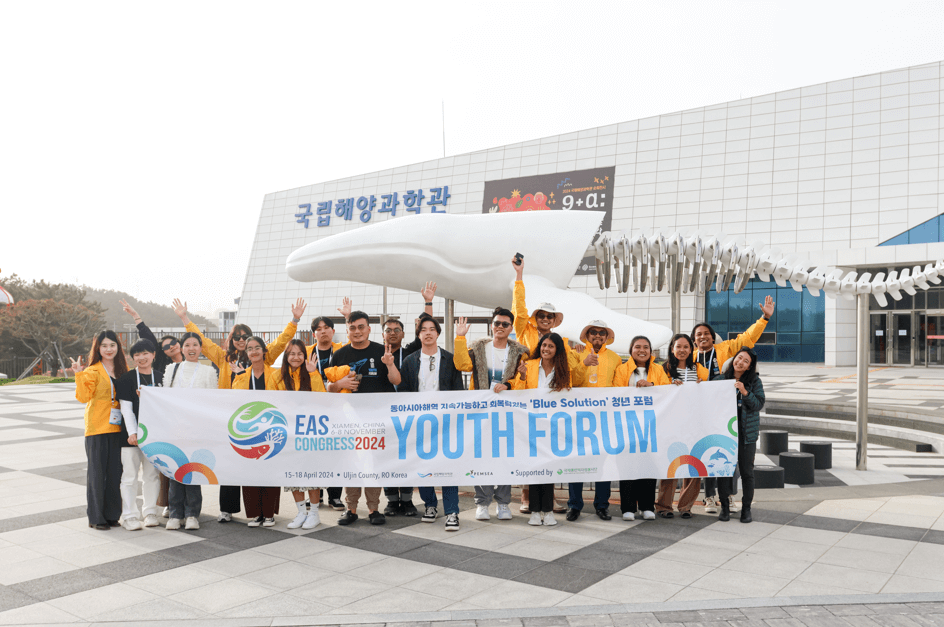Timor-Leste Joins the Region in ICM Scaling Up
Wednesday, 28 August 2013

Dili, Timor-Leste — Despite being a young and small country, Timor-Leste has shown great commitment to initiatives in Integrated Coastal Management (ICM) and the Sustainable Development Strategy for the Seas of East Asia (SDS-SEA). Like its neighbors in the region, Timor-Leste, through the Ministry of Agriculture and Fisheries (MAF), began laying the foundation for ICM scaling up as a major step toward sustainability of marine and coastal environment and resources in this newly developing nation.
The MAF organized a national collaborative planning and consultation workshop on 6–7 June for the GEF/UNDP/PEMSEA Project on Scaling Up the Implementation of the SDS-SEA (2014–2019) to draft a strategic results framework of actions, outputs and expected outcomes for Timor-Leste as a participating country in the regional project. The workshop had around 40 participants from national agencies, districts of Manatuto and Liquica, the Food and Agriculture Organization’s (FAO) Regional Fisheries Livelihoods Programme and Asian Development Bank’s (ADB) Coral Triangle-Pacific Project.
PEMSEA, with support from the Center for Coastal and Marine Resources Studies of Bogor Agricultural University (PKSPL-IPB) in Indonesia, held focused group discussions for the three project components: (1) partnerships in coastal and ocean governance; (2) healthy and resilient marine and coastal ecosystems; and (3) knowledge platform for building a sustainable ocean-based blue economy.
Workshop participants agreed to the following crucial targets, actions and decisions for ICM scaling up:
Completion and adoption of a national marine and coastal policy to be implemented by an interagency and multisectoral coordinating mechanism. It must also be aligned with existing sectoral policies and laws, and traditional customs and laws for conflict resolution and natural resource management, such as the Tara Bandu;
Completion and adoption of the draft Five-Year SDS-SEA Implementation Plan for Timor-Leste;
Preparation of local and national State of the Coasts (SOC) reports;
Continuation of livelihood development initiatives in Manatuto District and scaling up to include habitat protection and rehabilitation and sustainable fisheries management;
Continuation of livelihood development initiatives in Liquica District and scaling up to include climate change adaptation, disaster risk reduction and sustainable fisheries management. Liquica, especially Ulmera, is vulnerable to flooding from river overflow. Due to the steep elevation, rainwater from the upland causes flooding even without rain in Ulmera. Also, a plan to build a port in Tibar puts a nearby proposed protected area at risk from pollution and oil spills;
Scaling up of ICM implementation in Dili District, focusing on supporting ongoing efforts on establishment and management of a marine protected area in Atauro Island and establishment of a Port Safety, Health and Environment Management System (PSHEMS) in Dili Port;
Collaboration with ADB's Coral Triangle-Pacific Project in demonstrating increasing effectiveness of MPAs through ICM in project sites in Atauro Island and Batugade District;
Capacity development to strengthen the National University of Timor Leste (NUTL) as an ICM Learning Center for Timor-Leste. NUTL has signed a Memorandum of Understanding with the MAF to support the development of an academic program on fisheries. The NUTL would benefit significantly from exposure to other academic programs by interacting with various universities in the region.
With the majority of East Timorese depending on coastal and marine resources for livelihood, it is critical for Timor-Leste to take the next big step on ICM implementation. In recent years, the country has already made significant progress on marine and coastal resource management, including coastal and marine habitat surveys, mapping and species identification, river catchment and marine productivity assessments, Marine Protected Areas development, and ecotourism development.
The regional project on Scaling Up the Implementation of the SDS-SEA aims to build on these achievements and work together with relevant agencies, district administrations, nongovernment sectors, communities and development partners to demonstrate how management of watershed, coastal and marine areas can be enhanced through ICM implementation.



